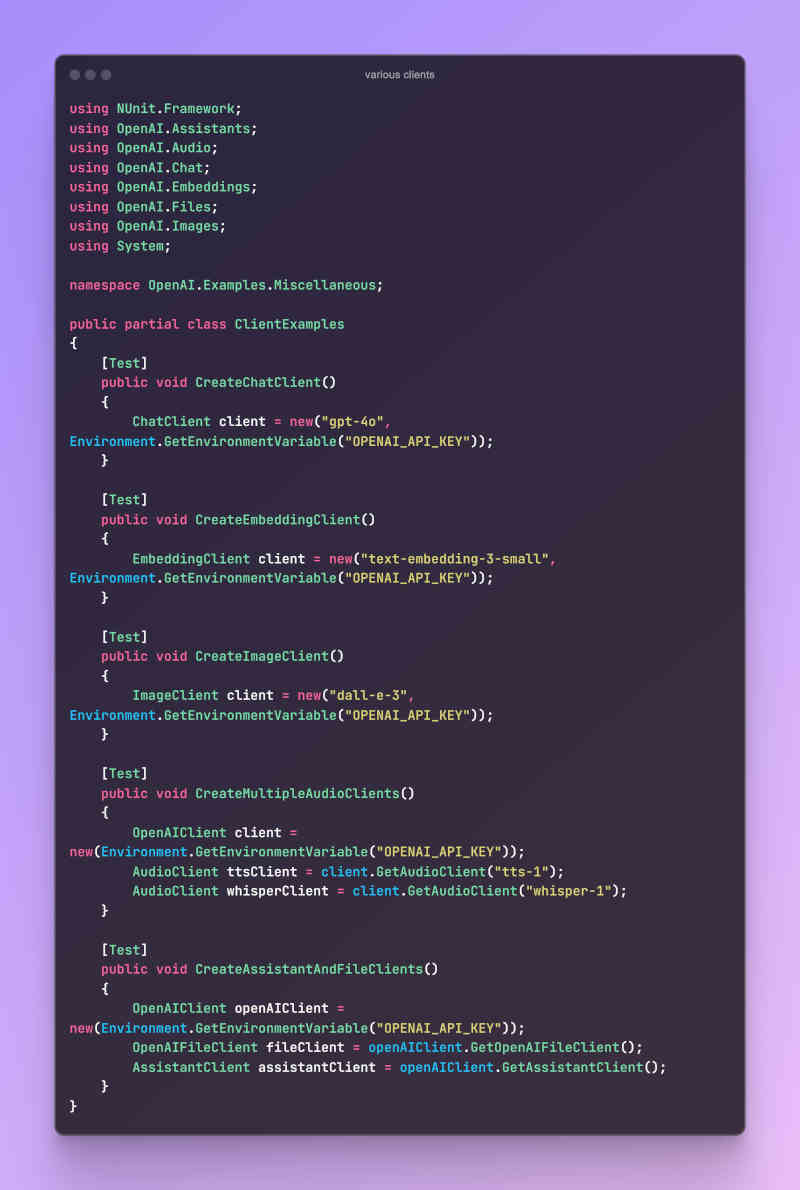| OpenAI Library For .NET Exits Beta |
| Written by Nikos Vaggalis | |||
| Tuesday, 19 November 2024 | |||
|
A few months ago the OpenAI .NET library was released as a beta. It has now reached version 2.0.0 and the time has come to leave beta and, with a few amendments enter production readiness.
As a refresher, the library provides convenient access to the OpenAI REST API from .NET applications so that developers can build AI driven applications. That access breaks down to :
You can very easily add it to your project through NuGet: dotnet add package OpenAI With that in place and after obtaining an API key, you can enrich you application with the following functionalities:
To put it into practice, here's a sample that summons various clients; embedding, image and audio.
The new version 2.0.0 implements a few breaking changes:
So if you've been using the beta and want to upgrade, take those into consideration.
There's also another Microsoft AI SDK, that of Semantic Kernel which serves a similar purpose in accessing LLMs from your code. The main difference is that with Semantic you get access to multiple models, and not just OpenAI’s, plus you can choose between the C#, Java, Python and Javascript versions. Explore both options to see which fits your needs. More InformationRelated ArticlesMicrosoft Introduces Unified .NET API For AI
To be informed about new articles on I Programmer, sign up for our weekly newsletter, subscribe to the RSS feed and follow us on Twitter, Facebook or Linkedin.
Comments
or email your comment to: comments@i-programmer.info |
|||
| Last Updated ( Tuesday, 19 November 2024 ) |





